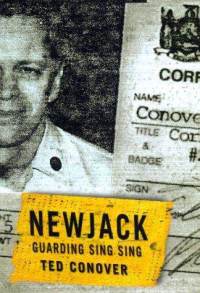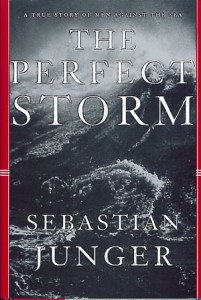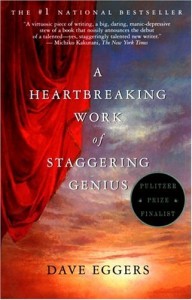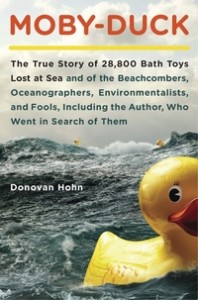Earlier this week Bora Zivkovic (@boraz) blogs editor at Scientific American tossed out the following links on twitter, and asked for thoughts. Both links were to articles from the Nieman Journalism Lab, the first Want to produce hirable grads, journalism schools? Teach them to code and the second News orgs want journalists who are great a a few things, rather than good at many present two different ways of thinking about the skills journalists need to have. The links started a conversation on twitter (excerpted below) between Bora, Rose Eveleth (@roseveleth) Kathleen Raven (@sci2mrow) Lena Groeger (@lenagroeger) and myself (@erinpodolak) I felt like there was more to say on the topic, so I decided to take it to the blog so that I could respond to everyone’s points without the confines of twitter brevity.
Category: Good Writing
Book Review: Newjack Guarding Sing Sing
When I try to explain to friends and family why I prefer to read nonfiction I usually tell them it is because the best stories are the ones that are true. Yes, making things up and presenting them in a way that is creative, entertaining, eloquent, and even beautiful takes skill and talent. I’m not arguing against fiction in general, I will certainly concede that there are wonderful works of fiction. There is definitely something appealing about getting lost in a made up world. However, it is my personal experience that I find myself more compelled and moved by stories that I know are real.
 I’m of the opinion that what happens in real life can be so fascinating that you can be transported completely into another time and place within this world rather than the Middle Earths or Panems of fiction. We see the world from a point of view that is shaped and focused by our own experience, knowledge and understanding about the way that things work. But the scope of my world is narrow. There are a lot of things in this world that I know absolutely nothing about. In a lot of instances, this is because I have had a very comfortable life. I want to understand the rest of the world, but can you ever really understand something that you haven’t experienced yourself?
I’m of the opinion that what happens in real life can be so fascinating that you can be transported completely into another time and place within this world rather than the Middle Earths or Panems of fiction. We see the world from a point of view that is shaped and focused by our own experience, knowledge and understanding about the way that things work. But the scope of my world is narrow. There are a lot of things in this world that I know absolutely nothing about. In a lot of instances, this is because I have had a very comfortable life. I want to understand the rest of the world, but can you ever really understand something that you haven’t experienced yourself?
Book Review: The Perfect Storm
I have been told by many teachers and writers more experienced than I, that one of the best ways to create good writing is to read good writing. This is a lesson I find easy to embrace considering I love to read. One of the first classes I took at UW-Madison was Deborah Blum’s literary nonfiction course, in which I spent the semester enveloped in the work of some great narrative nonfiction writers. One of those writers was Sebastian Junger, whose 2010 book War I’ve written about previously and recommend.
When I discover a writer that I enjoy I try to go back and read their other work. I’ve done this with Dave Eggers reading Zeitoun, What Is The What, and A Heartbreaking Work of Staggering Genius. I decided to give another of Junger’s pieces a shot and added The Perfect Storm to my Summer reading list. The Perfect Storm was published in 1997, and is the book that made Junger famous. It pieces together the last days of the swordfishing boat the Andrea Gail, which disappeared during a 1991 storm off the coast of Nova Scotia with all six crew members on board. I don’t believe in spoilers more than two decades after a story breaks, so I’ll go ahead and tell you that apart from some fuel tanks and some debris the boat has never been found, and its crew drowned.
 When The Perfect Storm was released Junger was called the next Hemingway. I certainly am not enough of an authority on Hemingway to weigh in about whether that is an apt comparison but I can say that Junger is masterful in the way he tells the story of the Andrea Gail. Communications on the boat were suspended in its final hours, so there is no definitive record of what happened. The last communication from the boat was on the evening of October 28, 1991. After that, what happened to the boat and her crew is open to interpretation. But interpret, Junger does. Based on research on the storm and weather patterns, about the Andrea Gail and how she was built, about swordfishing and what an experienced Captain like the Andrea Gail’s Billy Tyne would do when faced with the weather conditions Junger pieces together a likely scenario for what the Andrea Gail and her crew went through in that storm.
When The Perfect Storm was released Junger was called the next Hemingway. I certainly am not enough of an authority on Hemingway to weigh in about whether that is an apt comparison but I can say that Junger is masterful in the way he tells the story of the Andrea Gail. Communications on the boat were suspended in its final hours, so there is no definitive record of what happened. The last communication from the boat was on the evening of October 28, 1991. After that, what happened to the boat and her crew is open to interpretation. But interpret, Junger does. Based on research on the storm and weather patterns, about the Andrea Gail and how she was built, about swordfishing and what an experienced Captain like the Andrea Gail’s Billy Tyne would do when faced with the weather conditions Junger pieces together a likely scenario for what the Andrea Gail and her crew went through in that storm.
As a work of nonfiction that tells a story where no one knows for sure what happened, I think The Perfect Storm really works. Junger is honest with the readers that the only way to try to understand what happened to the ship is to understand everything else about the circumstances surrounding her disappearance. He achieves this with an amount of elegance and grace that does justice to the tragedy that unfolded while still presenting hard facts along with probable outcomes as evidence. I found the recreation of what it is like to be on a sinking ship, knowing you are going to drown to be particularly poignant.
“They’re in absolute darkness, under a landslide of tools and gear, the water rising up the companionway and the roar of the waves probably very muted through the hull. If the water takes long enough, they might attempt to escape on a lungful of air- down the companionway, along the hall, through the aft door and out from under the boat – but they don’t make it. It’s too far, they die trying. Or the water comes up so hard and fast that they can’t even think. They’re up to their waists and then their chests and then their chins and then there’s no air at all. Just what’s in their lungs, a minute’s worth or so.”
I think that what makes Junger’s recreation so plausible and acceptable is that he presents options, while still writing with definitive language. I think the book is honest, and raw and that is what makes it work. You can also tell that Junger really did his homework and talked to so many people and read so much about what it is like to be on a boat that he is able to explain the different scenarios. The fact that the scenarios all end up with the same outcome also adds an element of strength to Junger’s recreations. He states it so plainly that it gave me chills, “Tyne, Pierre, Sullivan, Moran, Murphy, and Shatford are dead.”
I recommend The Perfect Storm to anyone. The technical aspects of boat design and mechanics coupled with weather patterns and the physics of how together they affect a boat at sea are so well interspersed with narrative that the story holds your attention the entire way through. I thought the book was easy to get into and handle, while still being able to draw you back over and over if you need to put it down or are reading while traveling. I felt like I learned the basics about fishing, boats, weather, rescue protocol, the physics of the ocean, and the social side of fishing life. There is so much information it opens up a different world for readers, which I think makes it really worth your time.
It is also worth noting that The Perfect Storm was made into a film in 2000 starring George Clooney as Billy Tyne and Mark Wahlburg as Bobby Shatford. I haven’t seen it, and thus have no recommendation to give but from the trailer it looks like some cinematic liberties were taken with the story while still making an interesting film. I’ll be putting it on my ever-growing list of things to see when I have more time.
Book Review: A Heartbreaking Work Of Staggering Genius
Generally when I become clued in about a new author I try to read their work in the order in which they published it. I guess there is no real reason other than I like to see the evolution of the writer as it occurred, their interests, style etc. I do not always succeed at doing this, as is the case with Dave Eggers. The first book of his that I read was Zeitoun, followed a few months later by What is the What? I recently got a copy of his memoir, A Heartbreaking Work of Staggering Genius. I was going to read it in Germany, but then I didn’t. I had good intentions. Anyway, I just got around to reading it and now I feel conflicted.
 Conflicted because I’m somewhat in awe of Eggers’ ability to put his subject’s voice at the front of his other books, when the memoir shows that his own voice is so strong. The author’s voice in A Heartbreaking Work of Staggering Genius is nothing like the voices you get in Zeitoun and What is the What? I think I’m just having a hard time reconciling the fact that all of these books were written by the same person. I’m also not sure which voice it is that I find the most appealing. Eggers as he presents himself in A Heartbreaking Work of Staggering Genius is simultaneously appealing, astounding, and revolting and you know he did that on purpose.
Conflicted because I’m somewhat in awe of Eggers’ ability to put his subject’s voice at the front of his other books, when the memoir shows that his own voice is so strong. The author’s voice in A Heartbreaking Work of Staggering Genius is nothing like the voices you get in Zeitoun and What is the What? I think I’m just having a hard time reconciling the fact that all of these books were written by the same person. I’m also not sure which voice it is that I find the most appealing. Eggers as he presents himself in A Heartbreaking Work of Staggering Genius is simultaneously appealing, astounding, and revolting and you know he did that on purpose.
A Heartbreaking Work of Staggering Genius is a memoir, so as such it chronicles the period in Eggers’ life right before the deaths of his parents and the years following in which he takes over the responsibility of raising his younger brother. Eggers has a lot of self loathing going on, and while I love his honesty his feelings about writing about himself hit a little too close to home for me. They made me uncomfortable because I had to think about things I didn’t want to think about. Writing about yourself is weird. Writing about the people you know is even weirder, especially if they are going to find out you’ve been writing about them. I joke all the time with my parents that I’m going to turn their lives in a book and that is what is going to win me my first Pulitzer and launch my career. Eggers didn’t win the Pulitzer for this one, but it was a finalist. He did something I’ve always jokingly yet seriously considered doing and it freaked me out.
The only piece of writing I’ve ever done about myself and my family was to write down my September 11th story. We all have one and with 10 years separating me from those events I felt the need to have it written down somewhere. I pitched it, felt guilty about possibly benefiting from a story about a tragedy and about my family, and was more than a little relieved about the rejections that came back to me. Then I also felt rejected by the rejection and was sad that a story that meant so much to me wasn’t going to be heard. I think you can see the same mixture of emotions taking place in A Heartbreaking Work of Staggering Genius. Although Eggers’ story ended up quite successful.
My perception was that he desperately wanted the story to matter to someone other than himself. I feel like that is perhaps a characteristic of all writers, we want what matters to us to matter to you. More so when we are talking about ourselves. My story of September 11th and of my relationship with my parents feels like the most important story I have to tell. But the idea that what is so important to me wouldn’t matter to anyone else, and is not even comparable to the tragic tales of the rest of the 6 billion people in the world makes my feelings about the story fall flat. Then again, despite all of Eggers self-flagellation about everything his book was really well received. Perhaps because we all enjoy watching a car crash. All of us are voyeurs, we cannot help but be curious to peer inside the tragedies of others. But that still doesn’t make my story matter.
A Heartbreaking Work of Staggering Genius left me feeling unsettled. It is brilliantly brutal. It reads the way I’d like to someday be able to write. It also reads like the diary of someone with more than a few screws loose. I find this impossible to reconcile with the pitch perfect precision of Zeitoun. I now feel like I need to go read everything else by Eggers in an attempt to understand someone I will never actually know. He is not just the author, he is his own character, and I cannot help but be compelled to continue as a voyeur. I want the author’s voices to make sense, but perhaps there is no way for it to make sense. Perhaps the beauty of the whole experience is in seeing the author’s ability to unleash himself with such incredible force in one book, and disappear completely into the background in another. Regardless, I’m impressed and I recommend his work highly.
Book Review: Moby-Duck
Recently I departed on my first trip to Europe, to visit a friend who was studying abroad in Germany (Bonn, to be exact.) I traveled armed with several books lest I get bored on my flights or train trips, and one of these books was Donovan Hohn’s Moby-Duck. I really, really want to be able to tell everyone I know to go read this book, but I can’t. It was hard to get through, I kept stopping and starting and coming back to it, reading in short bursts which I don’t usually do because I could only focus on it for small intervals. I feel like someone who isn’t really invested in the subject matter would be likely to put it down and not go back to it. But even though I don’t think it is for everyone doesn’t mean I didn’t enjoy it. Actually, I liked it a lot.
 Moby-Duck starts with the seed of a great story, one so great it has been misinterpreted and told erroneous many times over the last decade. In 1992, a shipping container fell off the back of its transport ship in the Pacific Ocean. The container was holding small plastic bath toys, sets containing a beaver, a frog, a turtle and a duck. These bath toys, set afloat in the ocean traveled the high seas, and ended up washing ashore in high numbers on the Alaskan coast. Hohn is really captivated by the idea of the bath toys, particularly the rubber duck, lost at sea and ends up quitting his job as a teacher to chase the story and find out how far the ocean could have carried the toys. There were rumors that they had washing up in Maine, which would have meant traversing the arctic. It’s a good little story, if you don’t mind the fact that the ducks didn’t actually end up in Maine and Hohn spends the majority of the book chasing a figment of a duck. I really didn’t because this book is about much more than bathtub toys.
Moby-Duck starts with the seed of a great story, one so great it has been misinterpreted and told erroneous many times over the last decade. In 1992, a shipping container fell off the back of its transport ship in the Pacific Ocean. The container was holding small plastic bath toys, sets containing a beaver, a frog, a turtle and a duck. These bath toys, set afloat in the ocean traveled the high seas, and ended up washing ashore in high numbers on the Alaskan coast. Hohn is really captivated by the idea of the bath toys, particularly the rubber duck, lost at sea and ends up quitting his job as a teacher to chase the story and find out how far the ocean could have carried the toys. There were rumors that they had washing up in Maine, which would have meant traversing the arctic. It’s a good little story, if you don’t mind the fact that the ducks didn’t actually end up in Maine and Hohn spends the majority of the book chasing a figment of a duck. I really didn’t because this book is about much more than bathtub toys.
If you can see past Hohn’s sometimes difficult to relate to fascination with the rubber duck, you will start to notice though that this isn’t actually a book about rubber ducks. Sure, the science is there. It includes plenty of facts about pollution, plastics, and ocean currents. But really this is a book about fatherhood. Only speaking from my point of view as a 20-something woman who has no children, it feels like the book, the whole fascination with the ducks is Hohn having a hard time with becoming a father. That’s not to say he doesn’t want to be a father, the relationship with his son that he describes in the book is very sweet, but ultimately I think what the duck represents is childhood – Hohn having to let go of his and focus on making his son’s the best it can be.
One of the most likeable parts of the book is Hohn himself. While his self-deprecating descriptions of his participation in his various sea-faring adventures can get a little tedious (we get it, you are not particularly adept at this) at the same time you can’t help but feel a little jealous. Jealous that while you sit at your day job doing all the things you are supposed to, this guy had the balls to quit his job and travel through Asia, Hawaii, Alaska and the Arctic because he was just interested in something. Would you want to do that? I would. I respect Hohn for going in search of his own adventure, for chasing his own personal white whale, and for having the guts to do something unexpected.
The book is also beautifully written. Hohn writes like an English teacher, but in this case it works. His romanticizing of the ducks and the sea works in this book whereas in a different story I think it would drive me a little nuts. The descriptions of what he sees and experiences are pitch perfect for me. For example:
“One imagines, before setting sail, that seafaring promises excitement or romance but on calm tropical seas, the hours pass through one’s mind like cubic meters of water through a manta trawl, leaving a sprinkling of impressions snared in memory’s gauze.” (pg. 168)
Overall, Moby-Duck is a good book, it is well written, it has a great cast of characters, and there are a lot of interesting facts in it. Looking at it as a story about rubber ducks, will leave you disappointed. You have to see it for what it is, Hohn’s own adventure tale as he comes to terms with his life at home. I wouldn’t recommend it for everyone, but I enjoyed it and would certainly recommend it to people with an interest in the ocean, in pollution, or in personal narratives. I would recommend this book for people who normally read narrative non-fiction. There was a lot of good in it, even if it did take me a while to get through.










